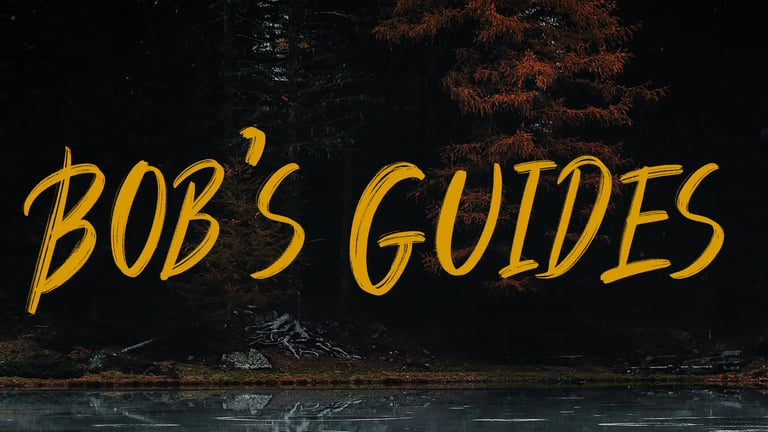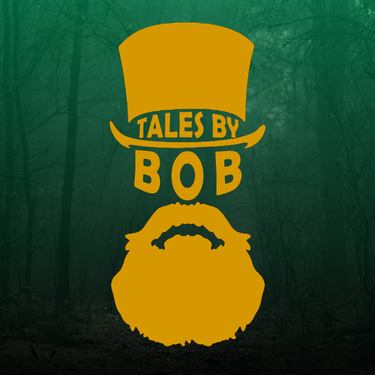
Bob's Guide: Elevator Pitches
TRANSPARENCYEDUCATION

"I write a series about a redneck wizard with a crippling meth addiction."
That's my elevator pitch. If you have ever sold at an event within earshot of me, you probably have it memorized too. My pitch works really well, either at hooking people or scaring them off. As such, I sometimes get asked for advice about elevator pitches. So here is me sitting down to give my thoughts about what makes a good quick pitch. Keep in mind, I am writing this from the perspective of a man who does a lot of hand selling at conventions. So it is largely geared towards making a sale, as opposed to gaining an agent.
1. Keep it under two sentences. One is better.
It's called an elevator pitch because if you were riding an elevator for one floor with a famous agent/film maker/etc you have to be able to complete it, and completely hook them. Short folks, short. Same goes for in the vendor hall. Sharing a table with folks? You don't want to hog all of a potential customers time from your other authors. You need to say your piece quickly, then either pass them to the next author you are sharing with, or have learned how to quickly pitch their book too. SHORT.
2. Tell them the core thing your book is about.
"I write a series about a redneck wizard..."
Your book is about something. My series is about a redneck wizard. If you strip away everything else, it is about Howard Marsh. Your book will have something similar. Maybe it is a character. Maybe it is an event. Figure it out, and frame it in such a way that folks who read your genre will recognize it. In my case folks here wizard, and they know it's fantasy. But fantasy is a big genre. When I say redneck, they are clued in that this is most likely Urban Fantasy set in our world.
3. Tell them what makes your book stand out.
"...with a crippling meth addiction."
If you can not tell someone what makes your book different, you probably need to think harder, or maybe rework your book. In my case, there are other books out there that have rednecks in them. There may even be some with redneck wizards (I mean I haven't found one yet, but I bet it exists). There are certainly ones that have rednecks and fantasy in them (Bubba the Monster Hunter, White Trash Warlock, etc). But how many of those have main characters with a meth addiction? None that I have found. Boom, I have told them what my book is about, and what makes it stand out.
4. The best pitch can also drive away folks who are NOT your market.
Don't stress too much about this. But I will say that the best pitches will do as good a job sucking the right people in and pushing the wrong people away. Some folks hear my pitch and are instantly hooked. Some folks won't make eye contact and back away slowly. Guess what: those folks who back away slowly wouldn't like my books anyway. It saves us all time and effort.
5. Have variations in mind.
"I write a series about a redneck wizard with a possum familiar."
If someone walking by my booth either has on something possum related, or gushing over something possum related in my booth, then I want to make a point to highlight the fact that I have a possum in my books. So I hit them with a variation in an attempt to better hook them. You may want to do the same.
Conversely, consider a situation like this: I am in the Southeastern US, which is a very Christian area. Older folks tend to be more religious than younger around here. Older women tend to be less open to my bookish bullshit than older men in my experience (the inverse is true for younger folks). So if an older woman is walking up to the booth I sometimes will say something more like "I write a series about a redneck wizard solving backwoods supernatural mysteries." It's close, without being so meth-tacular. It allows them a pause to consider, and me to judge their reaction. Then I can usually tell if meth is a go/no go.
6. Have a slightly long pitch ready to go.
"I write a series about a redneck wizard with a crippling meth addiction solving backwoods Alabama occult mysteries."
Sometimes you may want to add a little more detail, while still keeping it short. Use cases will vary. Mostly it comes from you just have a little more time, maybe it's less crowded and you aren't sharing a booth with other authors.
7. Experiment.
I did not come up with my pitch on the first try. I workshopped it over months as I sold me books at events and online. If your pitch isn't hooking folks, change it up.
8. Add on line.
"I'm from Alabama, they say write what you know. We got dirt roads and meth, so I figured add a wizard to the mix and there's a book there."
You hit them with the pitch, they have stopped, they are looking. You can tell though they are not totally hooked. It can pay to have an add on line to help further sink the hook. Make it memorable. Funny is nice, but that might not fit tonally. Maybe pick something that fits with your branding. My line above clues them in that I am from Alabama, which weirdly hooks some folks (espcially if they are from Bama), and makes them laugh a little bit usually.
9. Hook them, then expand.
If your hook is just right, half the time the person will say something like "Ok, and which is the first book?" and you're done.
The other half of the time they will say some variation of "Ok, tell me more." This is the point where you give them the details. But again, don't go on forever. What I usually follow up with is something along the lines of:
"Where the series starts he's homeless, living in a shed behind the dairy queen. He makes his living stealing copper out of air conditioning units, and really just want's to be left alone to get high. But he keeps getting drug, unwillingly, into backwoods occult mysteries."
That will probably have them sold. If not, just keep talking, or, better, ask them some questions. If they are reading the back of the book, shut up and let them read.
Examples:
In this section, I am going to pretend I wrote some famous books and do a quick elevator pitch for them. I have put zero thought into these, so they may be shit, but they would be a starting point to workshop from. I am also fractionally tailoring to fit my general style of pitching/branding.
The Black Company by Glen Cook
"My book is about a mercenary company that doesn't realize it just got hired by the Dark Lord. Shenanigans ensue."
Dune by Frank Herbert
"I write a politics heavy sci-fi series that mixes religion, drugs, and holy war together. Also, worms."
It by Stephen King
"Do clowns freak you out? My book is about a supernatural being that takes on the form of peoples worst fears to prey on kids, and the kids start to fight back. Spooky shit abounds."


